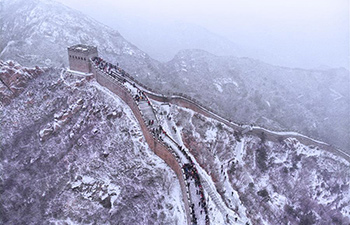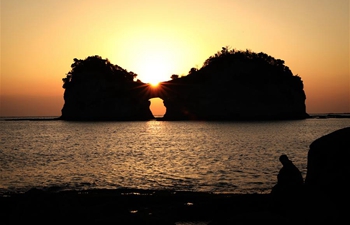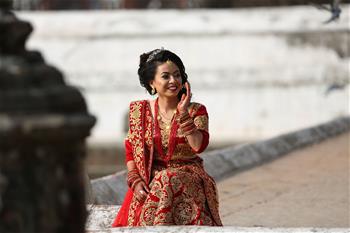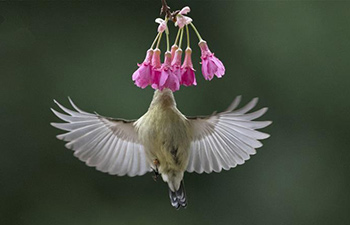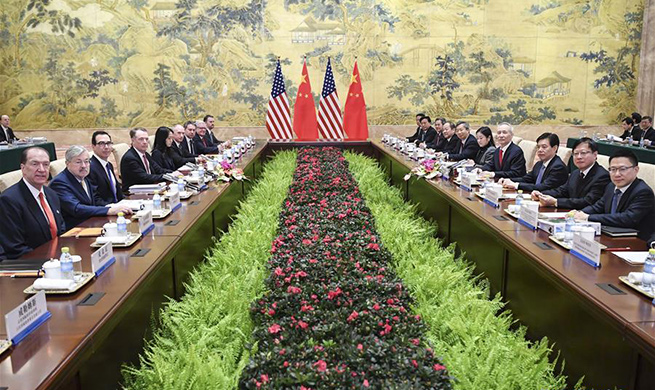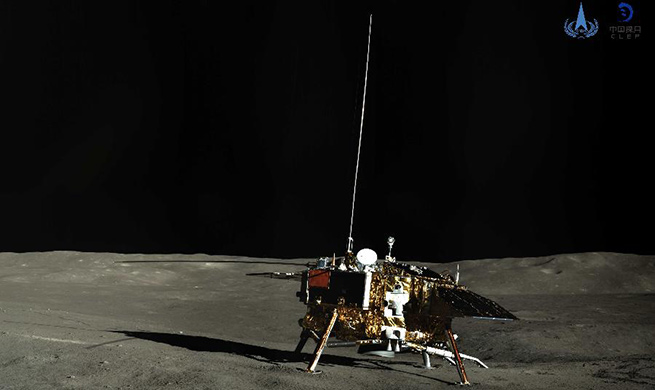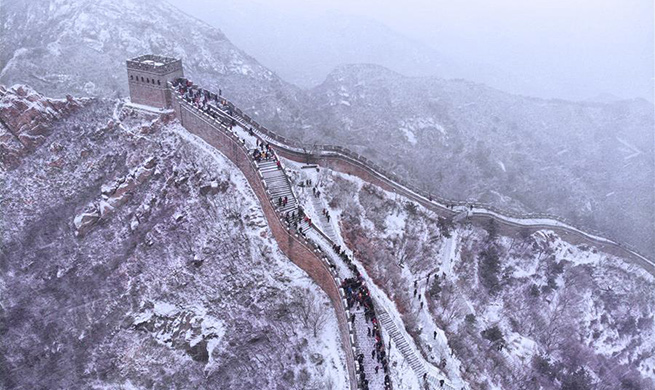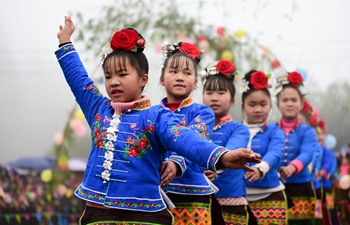WINDHOEK, Feb. 14 (Xinhua) -- A few years back, Selma Shimwandi from a far-flung village in Ohangwena region in the northern part of Namibia was self-opined. For the 38-year-old Shimwandi, her version of events reigned supreme.
"I would get into social fights and arguments with people over it as what I knew was what I perceived correct," she said.
Her conventional way of thinking was, be that as it may, challenged by the advent of radio in her village.
She started listening to the radio after her village got radio frequency reception a couple of years ago.
"The national broadcaster ran diverse shows in my vernacular language, including call-in shows. Presenters promoted open dialogue," she said.
After a time of listening attentively to the radio, Shikwambi learned how to tolerate and respect other people's opinions.
"Radio has been instrumental in moulding my mentality; it served as an agent of peace and national unity," she added.
Radio transforms, unites people as well as promotes peace and tolerance, said Djaffar Moussa-Elkadhum, the United Nations Educational, Scientific and Cultural Organization (UNESCO) head of office in Namibia on Wednesday during the World Radio Day commemoration.
Namibia joined the rest of the world in celebrating the day on February 13, under the theme "dialogue, tolerance and peace."
"Radio is a force for civic education and diversity. It offers new ways of interaction as well as improves plurality and diversity," Moussa-Elkadhum said.
According to the UN official, radio remains critical in changing the lifeline of citizens in conflict affected areas and steering peace where it exists.
Radio sparks new conversations and presents many opportunities for communities. Taimi Shihungileni from Kavango West region also tuned onto radio, for multiple purposes.
"I hear about many opportunities on radio such as training opportunities, jobs as well as ways on how to embrace multi-culturalism," she said.
At the grassroots level, the benefits of access to the radio are irreplaceable, according to the villagers.
Shikwambi, who rarely leaves her village, is now more informed and has the chance to understand the dynamics of globalization and national development.
"Information on new methods of farming and weather predictions has also helped me through climate variability over the years," said Shikwambi, who is also a subsistence farmer.
Debate on the radio is further promoted by communication tools such as short messages service (SMS) lines and social media platforms.
"I also make use of SMS in addition to calling the studio," Shihungileni said.
According to Emily Brown, a senior communication lecturer at Namibia University of Science and Technology, radio evidently influences change among people, regardless of their background and societal position.
Meanwhile, Frans Nghitila, a director in Namibia's Ministry of Information and Technology, said that government had stepped up efforts to ensure a broad coverage of radio frequency network.
Despite transformation brought by social media platforms, radio remains widely accessible, affordable and portable to audiences countrywide and globally, Nghitila said.
While radio remains a flight path for civic education, "all efforts will fail if broadcasters disregard the code of conduct and ethics in curating content because they are critical to the promotion of dialogue, peace, and tolerance in broadcasting," warned Moussa-Elkadhum.
A total of 33 radio stations are licensed by the Communication Regulatory Authority of Namibian.
